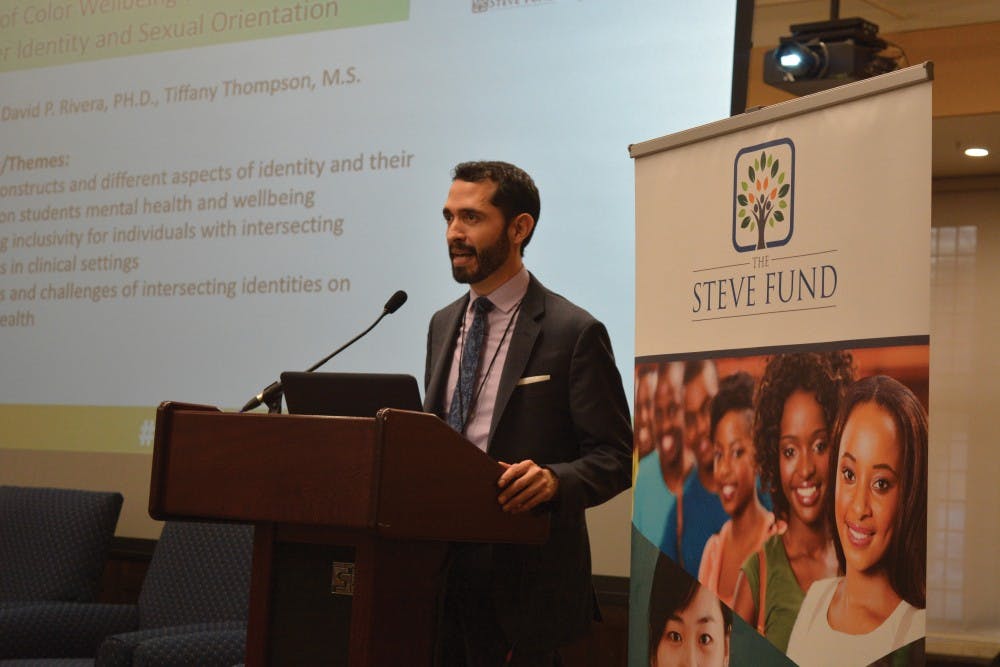Hundreds of experts, administrators, professors, and students from across the country gathered in Houston Hall on Nov. 14 to share ideas on how to promote mental health among students of color.
The Steve Fund, an organization focused on supporting the mental health of young people of color, paired up with Penn's Counseling and Psychological Services to host a conference titled "Young, Gifted, and At-Risk."
The conference, which is in its fourth year, featured speaker events and panel discussions. Speakers also encouraged audience members to talk among themselves about how racist events affect their well-being and the well-being of others on their campuses.
Started by the family of a Harvard University alumnus who died by suicide, the Steve Fund works to promote dialogue about mental health issues among young people of color.
Alfiee Breland-Noble, a panelist and senior scientific advisor to the fund, highlighted the importance of catering to young people of color because they are less likely to seek treatment for mental illness.
“Mental health is not just an issue for black students and students of color, but there are unique ways in which it impacts them,” she said to administrators at the conference. “You may only get them once or twice. You have to give them something tangible.”
Noble also urged administrators to work with international student groups as well as black fraternities and sororities to institutionalize more equitable mental health frameworks.
“Innovation is important,” she said. “We need to take help to where students are — go to the dorms, go to the residence halls.”
Graduate School of Education professor and the conference's keynote speaker Howard Stevenson discussed mental trauma caused by racism. He stressed the importance of equipping young people today with the tools to “read, recast, and resolve” stressful situations where they find themselves feeling under attack due to their race.
The Steve Fund recommends administrators identify the mental health of students of color as a campus-wide priority, offer and promote a range of supportive programs, share information within and between universities, and actively recruit a diverse faculty. They also recommended that universities call on students to provide constructive feedback and create an accessible process through which students can inform key administrators about concerns related to campus climate.
In the wake of backlash against Penn's recent crackdown on unregistered social events, Penn President Amy Gutmann announced a University-wide “Campus Conversation” to address ways to foster resilience in the face of student deaths, natural disasters, and political instability.
But the two-hour session, held two weeks ago, failed to address student concerns on policies surrounding mental health, financial aid, academic resources, or immigration. Gutmann and Pritchett responded to four personal questions, and the event did not have an open question-and-answer segment for audience members.
Jenny Ortiz, who works as a suicide prevention coordinator at Carleton University, said she “felt empowered to help students in bettering their mental well-being” after attending the conference.
Stevenson emphasized that administrators must "reduce the intensity felt by young people due to the threat [of racism].”
“In dealing with racism in this country and on college campuses, sometimes you have to pray, ponder, process, prepare but other times you have to push,” he added. “Push to do something, to say something — but neither of these skills are prevalent in our societies today.”



